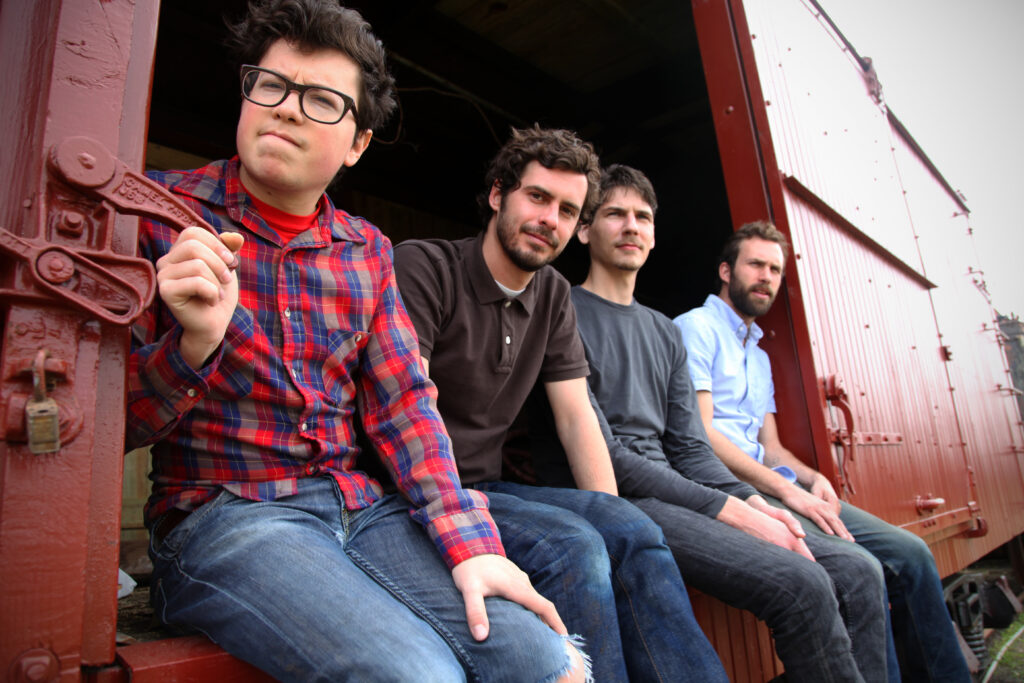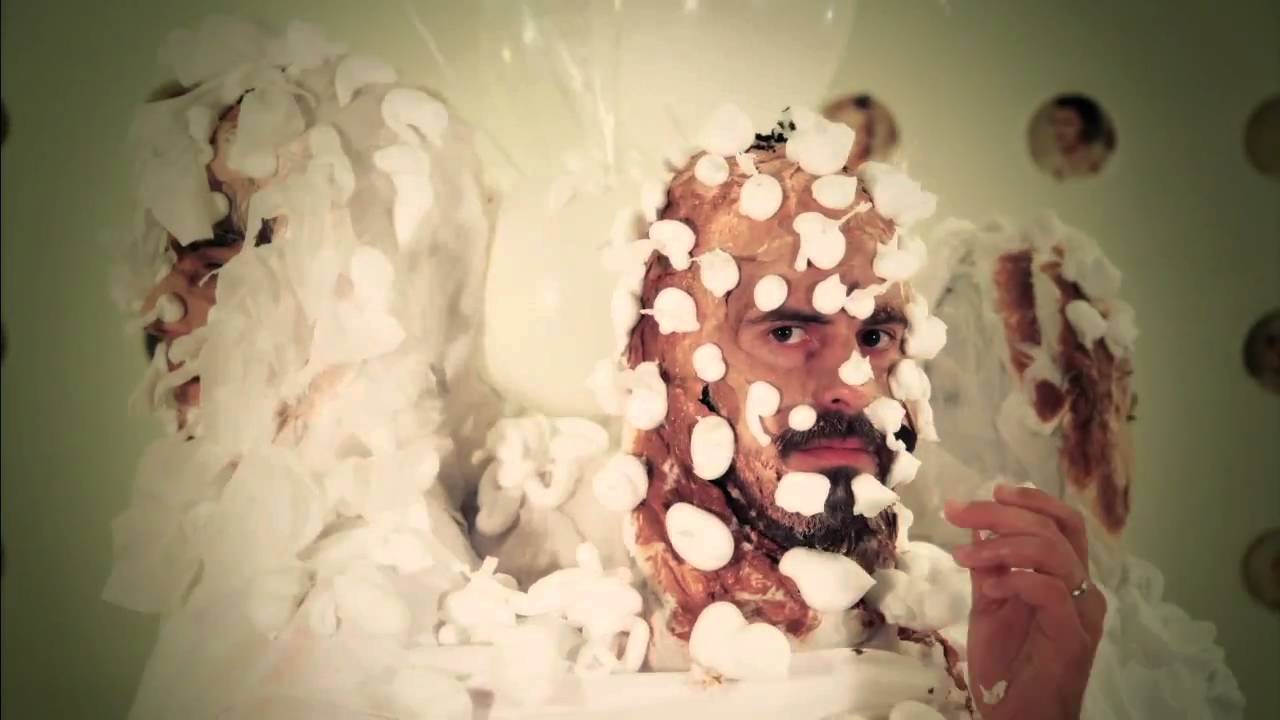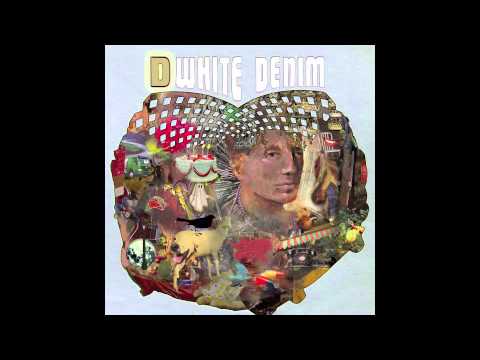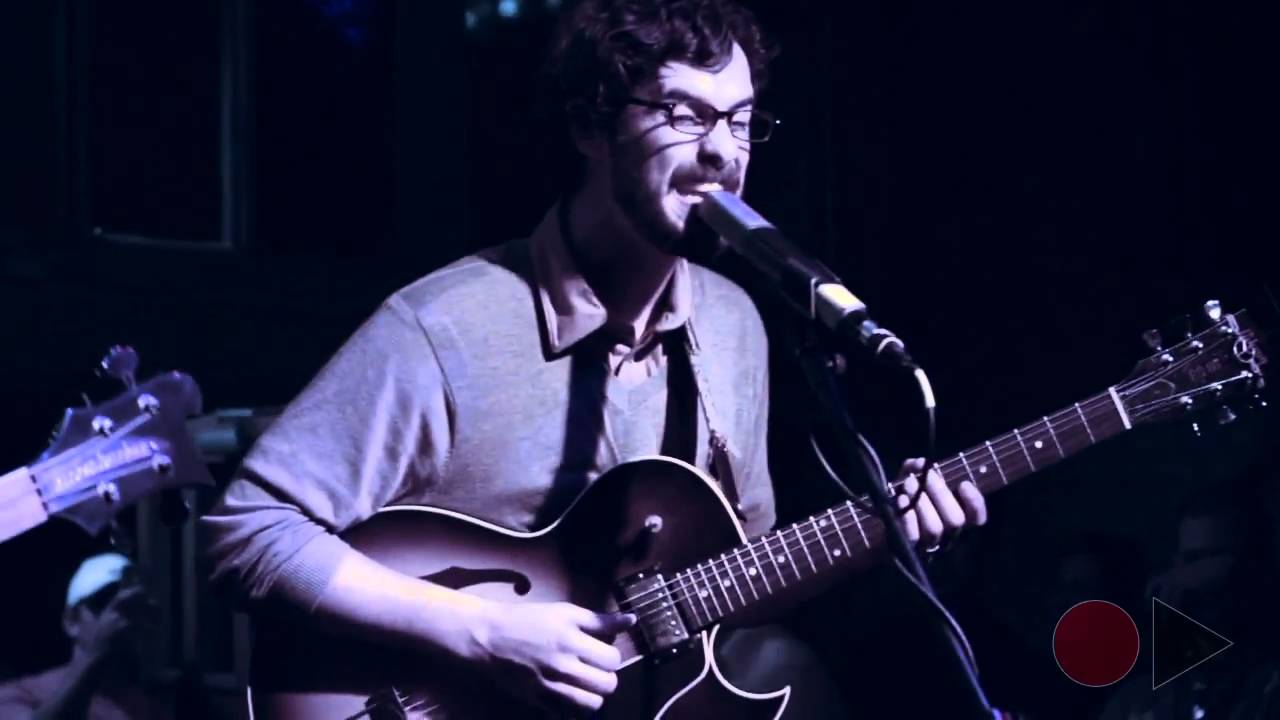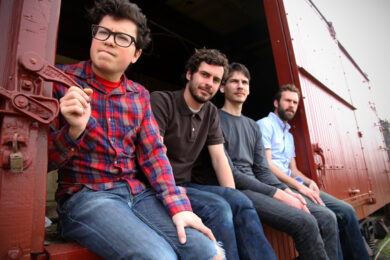"I do have a convoluted way of communicating sometimes," admits James Petralli, singer-songwriter with Austin’s White Denim. "I should work on it." We are talking about the career crossroads faced by many bands – the balance between creating their preferred art, or accepting compromise to chase sales and cement some sort of sustainable living from music.
Since their formation five years ago, the Texan quartet (they’ve recently recruited Austin Jenkins for additional guitar firepower) has released three albums of scintillating prog rock, basing a sound around freeform song structures and Petralli’s twisted poetry. So, for Petralli, whose band inhabits the very edges of consumer-friendly rock, the very suggestion that he should detangle his message does not sit naturally.
White Denim’s third album, last September’s digital freebie Last Days Of Summer, was actually recorded after their current release D as an act-of-spontaneity and a sonic palette cleanser. It transpires that D was crafted over an eight-month period, with the usually impulsive band spending endless hours honing and fine-tuning in their hometown studio.
When I speak to Petralli, he reveals his complicated relationship with the new record. Intriguingly, its snappier and, perhaps, more easily digestible than previous albums. It may appeal to a greater number of punters, but it also feels like an erosion of White Denim’s trademark V-sign to restraint.
While Petralli thinks D is "cool," he admits to spending far too much time on it – to the point of diluting the crackle of energy that makes White Denim such a visceral live band. A new record company demanded commercial accessibility, pushing Petralli and his band mates into uncomfortable territory. Thankfully, D works beautifully as an all-American psychedelic rock record. Perhaps, James Petralli is a better communicator than he gives himself credit for.
You’ve described making D as your ‘nine to five’ record. Why did you decide to treat it as a day-job?
James Petralli: The main reason was that we were at home for a period of time, and we wanted to be able to live essentially normal lives with our families. We were working while our significant others were working.
How did it change you approach to writing and recording?
JP: We took our time a lot more – we weren’t working super-long days, I think the longest day was ten or 12 hours. Normally, when you are in a studio you really try and make the most of the time – you push until you can’t go any more. We were more relaxed about takes and we spent more time on single sounds than we had before.
Can you spend too much time on the recording process?
JP: Definitely. With D it began to feel like we were focussing on it too much. That’s kinda why we made Last Days Of Summer. Most of the tracking for D was done, and we did the Last Days Of Summer in a more traditional manner for us as a band. We gave ourselves a vacation by making another record.
You make it sound like the creation of D became pretty intense – why was that?
JP: We had put a lot of pressure on ourselves, and we had had a lot of external pressure from the new record company that we had signed to, to make something that was a leap ahead. We didn’t really know how to process that. Last Days Of Summer was a return to our old approach. We had all these songs lying around – so we did something we were really familiar with to refresh ourselves. We weren’t taking ourselves too seriously.
What external pressure did you get from your record company?
JP: They wanted big songs and big hooks and stuff like that.
Oh, that’s not entirely helpful of them.
JP: It’s a big request. That has never really been our thing. So, we kinda struggled with the material at first. We knew we wanted to make something that was going to challenge us as players – we tried to do live takes – so a lot of the pressure was the pressure we put on ourselves. That is a lot easier to handle than external pressure.
Were they trying to get you to be more radio-friendly? One of the great things about your band is the idiosyncrasies of your song structures. But, does that make it harder for you to appeal to the masses?
JP: It does enter my mind. I think it is starting to. At the end of the day, we are really trying to connect with people but we have to be honest with ourselves. We are not going to make music that we don’t like. The music that moves us is generally a little more complicated than verse-chorus-verse-bridge structure. So, we think about it and are just trying to strike a balance. We don’t want to alienate people and become a full-on prog band, but, well, we do want to kind of be a prog band! Soft Machine really got it right with their first record. That is the kind of album that we hope to strike at some point.
Was Soft Machine’s debut [1968’s The Soft Machine] a touch point for D?
JP: Yes, we also listened to a lot of Heads, Hands & Feet and Albert Lee’s group which was a country-rock band. These were touchstones that we were always pulling up and making sonic comparisons to. So, in that regard, we were trying to relate D to what had existed before. D was definitely a ‘music obsessed’ exercise. Now, we are trying to get out of this referencing thing in the studio. For the demos that we are working on now we are writing down adjectives that are not musically-related; also using photographs and making more abstract connections between things.
So, give me an example of a word you have used to connect to a new song…
JP: We’ve got one song and we’ve been talking about an ice-box – like a big walk-in refrigerator. We want to have this cold, enclosed feeling for this tune. We’ve been looking at a lot of Francis Bacon paintings and stuff by Pieter Brueghel, just to capture some different kinds of feelings. We are trying to experiment different ways of approaching it.
If you were looking to make the music more accessible, did you take the same approach to the lyrics??
JP: Well, I always write the tunes then work on the lyrics. With this record I tried to build maybe not a strict narrative, but a more relatable language. I used a lot of words on this record. I was using a thesaurus – I did spend a lot more time on the lyrics than before.
Lucas Anderson, who played with you in the band Parque Touch, has a significant role for White Denim. What does he bring to the band?
JP: I like to send him writings and demos and keep him involved because he has got a really fresh perspective. He’s not a musician but he is a really avid listener and he is a great writer. I always bounce things off him in the early stages.
I believe also contributed some lyrics to D…
JP: Yes, he wrote the lyrics for the second song on the album called ‘Burnished’. He is currently working for the State Department. The lyrics are pretty obviously about US immigration policy with Mexico. I’m not trying to talk too much about politics but that is his thing, so we went with it.
It is fascinating that you have incorporated an external voice, even though it is at odds with how you would normally present your lyrics.
JP: That is what makes it interesting. The band is an avenue for all of us and it is something that we’ve been imagining for decades. When you are a teenager and you talk about how great it would be to start a band and make art for a living, we used to have this really communal idea, like ‘we are going to buy a farm and all live together and write books and make paintings’ – all that kind of stuff. We are still very open to one another and the people that we worked with in the past.
D is White Denim’s fourth album – how do you think you’ve developed as a band over the last five years?
JP: I hope that my songwriting is a little bit more direct and concise. I think that the band, just as a result of being together and making so many records and doing so many shows, has become a lot tighter and are playing at a higher level than we were three years ago. We are just trying to pull different things out of ourselves.
And as you releases albums, do your expectation change?
JP: Success, for us, is really just to stay involved. There are a lot of good thing about being with a new record company and some things that are difficult. If we can tour and get to make another record that would be a great success. I don’t expect the record to be an explosive thing – there aren’t really any radio hits, or whatever. I hope that it brings more people in. All we want to do is continue as a band.
Finally, you talked about a new set of songs. What might the fifth White Denim album sound like?
JP: It is sounding a lot more poppy, actually. We are definitely approaching a lot of different genres. Without wanting to fall into giving references, we’ve been reading a lot of books about The Beatles’ recording techniques and have been employing a lot of those methods. It’s gonna be psychedelic but very modern. It is probably gonna be a double as well. We’ve really gone for it.
D is out now on Downtown

